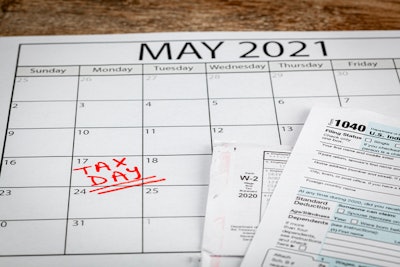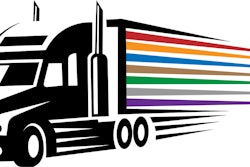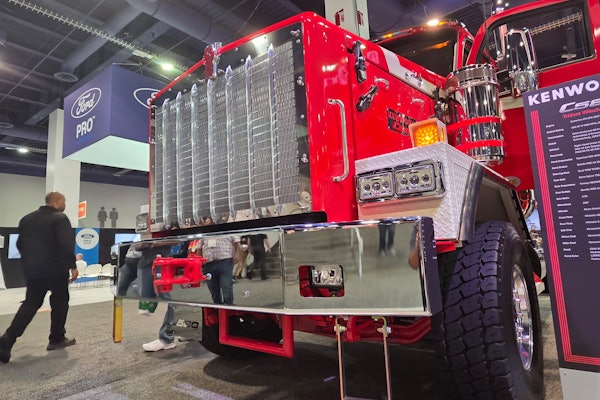 With the primary income tax deadline delayed until mid-May, there was only a one-month gap between that date and the June 15 deadline for quarterly estimated income tax.
With the primary income tax deadline delayed until mid-May, there was only a one-month gap between that date and the June 15 deadline for quarterly estimated income tax.
I couldn’t sleep Sunday, and in the accompanying wee-hours mental reckoning I came upon one of the reasons. Say it ain't so, Joe … Yep, Tuesday, June 15, quarterly estimated tax payments are due. (And though I'm retired from the road, I still have to make them given the self-employed nature of my business.) Every few weeks it seems I have some type of conversation with an owner-operator less than confident about what to do about taxes.
I cannot encourage you enough to set aside the time to deal with the administrative side of your business. Like preventive maintenance on your truck, proper attention now will save you hours and money in the future and lower your stress. All of that will help your confidence, and you’ll likely make better decisions.
Every year, too many newer owners get behind, particularly those who’ve transitioned from an employee role at a company. There, of course, you’re programmed to anticipate just one date, April 15. Many such former employees quite likely are used to receiving a refund, too, given they’ve paid the IRS through withholding every payday, and the employer files and makes the deposits as required.

Fallout from the ongoing COVID pandemic remains a factor. My tax preparer told me 2020 tax filings were much more difficult to handle with all the CARES Act money distributed, and IRS changes, too. Plenty confusion seems to be still carrying on among taxpayers and preparers themselves.
And though the IRS gave taxpayers more time to file their annual return (May 17), it didn’t relieve you of business tax responsibilities. That leap forward a month didn’t change the usual quarterly estimated taxes deadlines.
[Related: Should I pay quarterly taxes or pay off my truck?]
My wife, Marcia, has always been excellent at managing these payments -- writing the checks, arranging the stamped envelope with the due date written on the outside to drop into the mail a few days ahead of time. It’s this one coming up in June that always feels as if it sneaks up on me, though, given it’s just two months after April 15. If you’re wondering why supposedly quarterly payments aren’t exactly quarterly, well, they’ve been on this schedule since the 1960s. Back then, the former mid-October payment date was moved back to September to get those payments in before the end of the federal budget year. The government’s fiscal year starts on Oct. 1.
Calendar-year-based accounting for businesses, though, meant the Jan. 15 date was advantageous for most, so it would remain the same, and the decision was made to also move back the former July payments to June.
Marcia and I have benefited, too, from a great relationship with a certified tax preparer firm we’ve worked with for more than four decades. They’re a genuine asset for our general business, income management and retirement planning all. If you're a new business owner in trucking, a certified tax preparer could be the best choice for the first support partner you contract with.
[Related: This bill is hard to predict, easy to ignore, but always comes due]
But what if you haven’t filed last year’s taxes yet, or this is your first year in business? What should you do now, is it too late?
The longer you delay, the harder it will be for you to come to terms with your responsibilities.
You’re not alone. Business services firm ATBS estimated last year that, even among clients it prepares taxes for, up to around 40 percent fail to pay quarterlies. In the wider population of owner-operators, ATBS President Todd Amen told Overdrive Editorial Director Max Heine (see video below), that share is probably more like 70% or 75%. The motivation in part, Amen guessed, was concern about being doubly sure of what was owed at the end of the year. Yet if you’re required to file quarterly estimated taxes and you don’t, you’ll pay a penalty, that’s sure.
If you haven’t filed your 2020 return yet, contact a certified preparer and explain your situation. Ask questions. Most of us know well how cumbersome it is to gather all the needed documents. Don't procrastinate reaching out for help because you feel embarrassed or guilty. This situation is more common than you might expect. Trained tax professionals know how to get you back on track.
As the end of the second quarter approaches, discuss with your tax pro your current income situation, given that many owners are enjoying higher incomes because of the extraordinarily high freight rates they’ve seen. Make the needed adjustments to avoid problems -- like not having the right savings set aside for higher taxes.
If this is your first year in business, start correctly. Learn how the estimated quarterly tax payments apply to you as a self-employed individual. Your business is part of that. If you jumped right in by setting up your business as a limited liability corporation, as I am seeing so much of, you might think you are going to be exempt.
But you still must decide if you are going to file your federal taxes as an S Corp (having paid yourself a wage and deducting taxes with every distribution) or a sole proprietor. Discuss this choice with your tax preparer.
Paying yourself as a W2 employee does help relieve some and perhaps all your estimated quarterly payments, but understand that this can vary. Some people have indicated that their LLC or S Corp did not have to pay the quarterly taxes because they used a payroll for themselves. In this situation, your corporate profits greater than your payroll may still be subject to quarterly taxation.
Access an IRS bulletin on avoiding estimated tax withholding penalties via this link.
[Related: Owner-op income for 2020 a mixed bag, but plan for downside, more uncertainty]
Readers can find more information about taxes, per diem and more in the updated 2021 edition of the Overdrive’s Partners in Business manual for owner-operators and prospective owner-ops, produced with ATBS and sponsored by TBS Factoring Service. It's available for download via the link.









